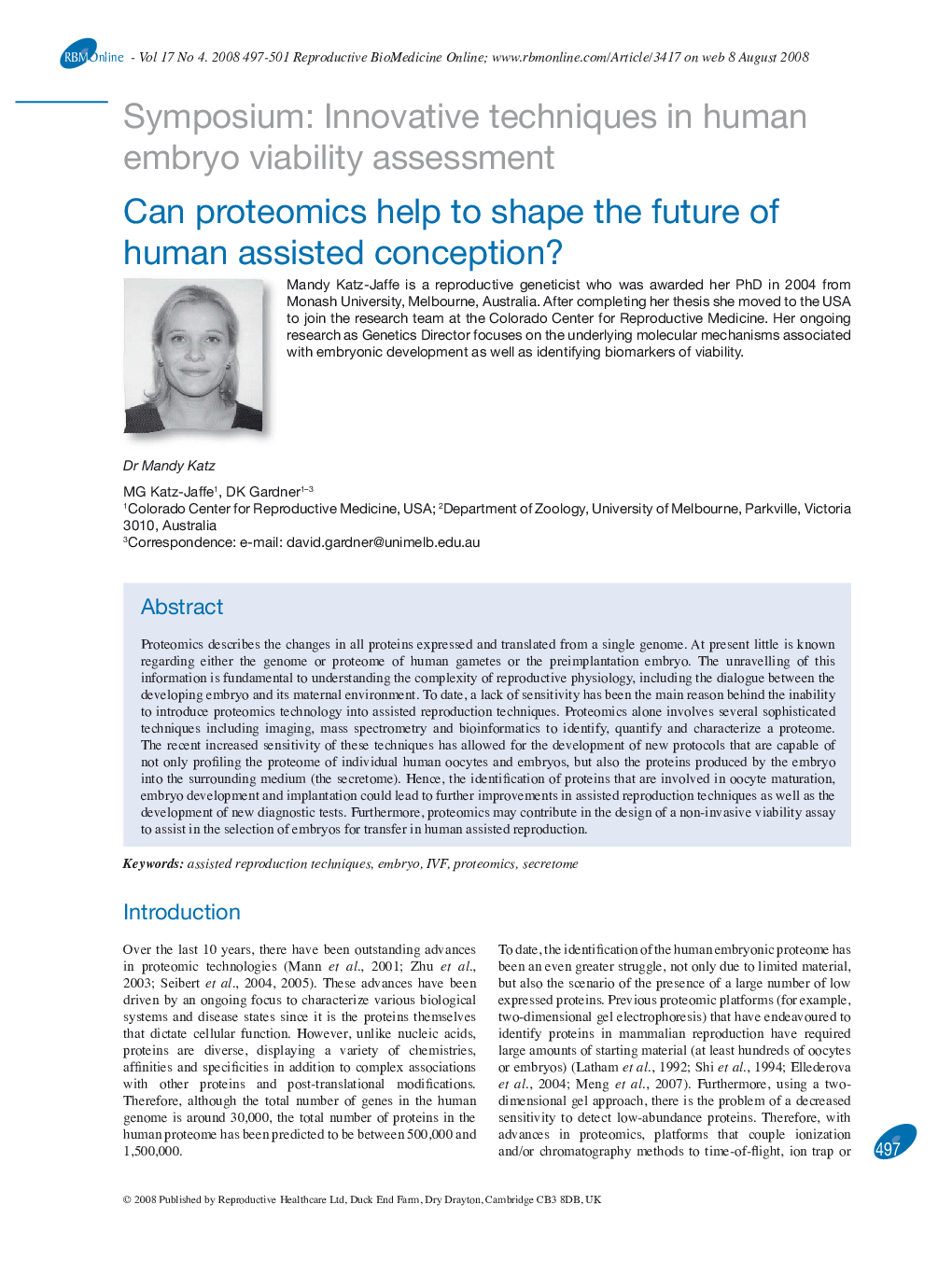| Article ID | Journal | Published Year | Pages | File Type |
|---|---|---|---|---|
| 3972378 | Reproductive BioMedicine Online | 2008 | 5 Pages |
Proteomics describes the changes in all proteins expressed and translated from a single genome. At present little is known regarding either the genome or proteome of human gametes or the preimplantation embryo. The unravelling of this information is fundamental to understanding the complexity of reproductive physiology, including the dialogue between the developing embryo and its maternal environment. To date, a lack of sensitivity has been the main reason behind the inability to introduce proteomics technology into assisted reproduction techniques. Proteomics alone involves several sophisticated techniques including imaging, mass spectrometry and bioinformatics to identify, quantify and characterize a proteome. The recent increased sensitivity of these techniques has allowed for the development of new protocols that are capable of not only profiling the proteome of individual human oocytes and embryos, but also the proteins produced by the embryo into the surrounding medium (the secretome). Hence, the identification of proteins that are involved in oocyte maturation, embryo development and implantation could lead to further improvements in assisted reproduction techniques as well as the development of new diagnostic tests. Furthermore, proteomics may contribute in the design of a non-invasive viability assay to assist in the selection of embryos for transfer in human assisted reproduction.
